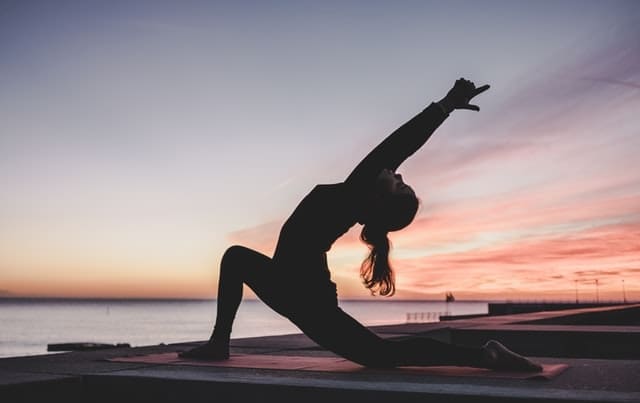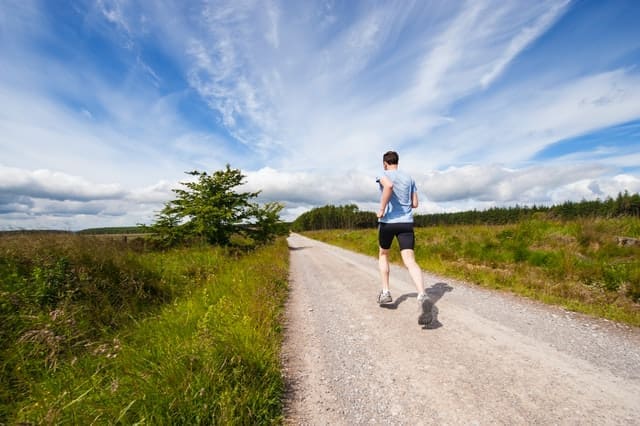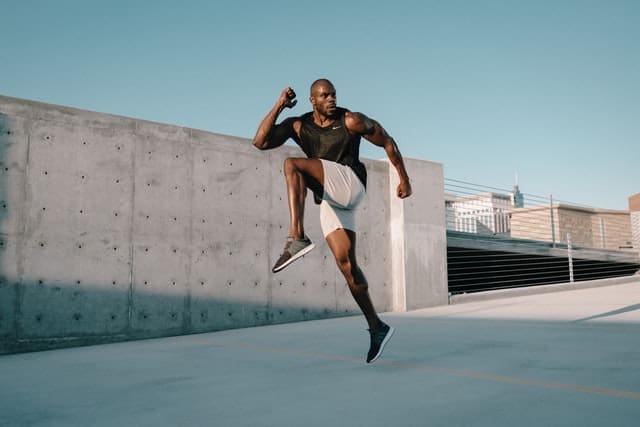The physical benefits of exercising— including improved physical condition and illness prevention — have long been recognized, and physicians always encourage patients to keep an active lifestyle.
Working out is also believed to be vital for sustaining mental well-being and can assist in stress reduction. According to research, it is particularly good at reducing fatigue, increasing alertness and attention, and improving general cognitive performance. This is especially effective if stress has depleted your energy or concentration capacity.
When the brain and its myriad nerve connections are impacted by stress, the rest of the body is impacted as well. Alternatively, if your physical well-being improves, your entire well-being improves as well. Workout and other physical activities release endorphins — chemicals in the brain that act as natural painkillers — and improve sleep quality, which contributes to stress reduction.
A good aerobic workout has been shown to lower overall tension, improve and stabilize temper, improve sleep quality, and increase self-esteem. Anti-anxiety effects can begin to manifest within five minutes of cardiovascular activities.
In short, exercise is one of the best ways to improve mental health. Continue reading this article to find out more!
Exercise and Anxiety Disorders
While stress and anxiety are natural components of life, anxiety disorders, which affect 40 million adults in the United States, are the most common illnesses. Exercise’s positive impacts are expected to extend beyond stress reduction to encompass anxiety and related illnesses.
According to researchers studying the effectiveness of exercising on any version of anxiety disorder and depression, a ten-minute walk may be as beneficial as a 45-minute workout. Numerous researches demonstrate that exercising has a rapid euphoric effect on a substantial majority of people who are depressed.
While the benefits are transitory, they suggest that a quick walk or another simple exercise can provide relief for several hours, similar to taking an aspirin for a headache.
Additionally, science has demonstrated that physically active people have a lower rate of anxiety and sadness than those who are sedentary. A good workout or training session may enhance mental functioning by assisting the brain in more efficiently dealing with stress. Hence, ensuring symptoms of any disease that would negatively impact the brain do not appear.
Recent American and international pieces of research have proved the close connection between fitness and reduced rate of psychiatric and behavioral problems. One can also go through various pieces of info available online. For instance, anxiety essays published by PapersOwl provide more detail on various anxiety people face and what they must do to overcome it.
Exercise as a Mode of Treatment

According to some studies, daily exercise works just as well as medication for some people. It can help calm down levels of anxiety and depression, and the results can be long-lasting.
However, while working out may be beneficial, there have been numerous debates indicating that exercise might have a negative effect on anxiety or depression in certain people.
As with all forms of therapy, the result varies: some people may respond well, while others may see little improvement in their mood, while others may notice only a minor short-term advantage. Nonetheless, researchers assert that exercise’s good impacts on physical well-being are undisputed, and individuals should be encouraged to maintain physical activity.
Types of Physical Exercises


Fortunately, numerous forms of exercise can improve mental well-being and cure anxiety. It’s critical to discover which exercise or sport matches your lifestyle, whether it’s weight lifting or running. The following are some types of exercise that are very beneficial:
Yoga
Yoga can be gentle or strenuous. The most popular style of yoga (hatha yoga) combines physical postures (asanas) with periods of meditation.
Yoga is a low-risk approach to mental healing. Often, the beneficial benefits are noticeable after just one class.
According to a 2018 study published in Complementary Therapies in Clinical Practice, yoga can help with the following:
- Reduce physiological arousal levels
- Reduced heart rate
- Blood pressure should be reduced
- Enhance respiration
- Reduce the inflammatory response to stress
- Depression and anxiety are reduced
- Increased vitality and a sense of well-being
Taijiquan
Tai Chi is a traditional Chinese martial art that incorporates meditation and regular breathing into a slow succession of beautiful motions and stances (also called forms). Tai Chi has been demonstrated to:
- Eliminate stress
- Blood pressure should be reduced
- Reduce anxiety, alleviate depression, and boost self-esteem
Aerobics
According to some research, regular aerobic activity (such as running, cycling, or swimming) is connected with improved psychological health.
While most research has concentrated on depression, panic disorder, and obsessive-compulsive disorder (OCD), there is some evidence that exercise benefits social anxiety.
Both single sessions and long-term aerobic exercise programs have promoted psychological health.
Conclusion
If you are new to exercise, it is critical to visit your physician to establish the optimum type of exercise and intensity level for your physical condition.
Exercise capacity can be affected by your medical history, present medications, and diagnosed diseases.
It’s important to remember that finding an activity that interests you is critical to maintaining your workout routine. Whether you favor Yoga’s slower pace or the hard goals that can be established when swimming, getting your 30 minutes of exercise every day should be your first focus. You will discover that whichever exercises you prefer will benefit your mental health.
Featured Photo by Karsten Winegeart on Unsplash




